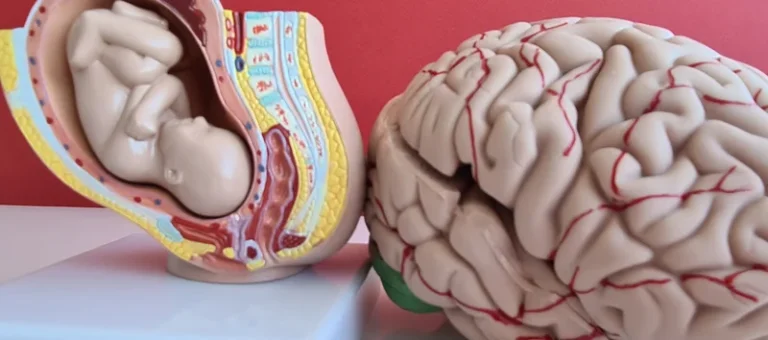
When we’re open and honest with ourselves and others, we can begin to see our strengths and weaknesses. These positive changes lead to living healthier, happier lives. Our recovering loved ones have the same fear we do – that they will return to using/drinking. The difference is that they have 100% control over whether they stay sober and we have none. Worse still, there’s no guarantee of sobriety beyond today.
- Her alcohol use had begun to cause tension in her marriage, and her husband, Dave, “was so grateful and so supportive” of her sobriety, she told HuffPost.
- I was attracted to his sensibilities and the ease with which he could be just as comfortable in his business suit as his biking gear.
- Underdog needs to be encouraged to take on more responsibility, while Top Dog needs to let go of control and stop enabling the addict by being super responsible.
- Recovery can also sometimes uncover underlying mental health conditions that have contributed to substance use disorder.
- I’ve spent the last seven years researching and understanding alcoholism, addiction, and how people get sober.
Cymbalta Ruined My Life—What Do I Do?

Be patient while they re-learn how to cope normally again or even for the first time. But, don’t allow them to manipulate, lie, or treat you disrespectfully. If these behaviors seem to be a problem for your spouse in recovery, then individual and couples therapy could be beneficial. Setting boundaries with a person in recovery is just as important as setting boundaries with someone in active addiction.
The Addict
Aftercare planning is a significant part of addiction treatment. During this part of recovery, counselors will develop a plan for staying sober while rebuilding life. The recovering addict must also be patient as his or her spouse works to rebuild trust. Trust is linked with intimacy, so understand that your amphetamine addiction treatment spouse may need time to rebuild the sexual part of your marriage as well. If you’re married to an addict in recovery, you’re certainly not alone. Millions of families struggle with a loved one’s addiction, but many learn how to successfully adapt to the changes recovery brings.
- For the recovering addict, this means absolute honesty is essential.
- Trust has been broken many times, and it will have to be rebuilt – a process that can’t be rushed.
- When your spouse does things that incite an urge to drink, make a note of those things and come up with a plan.
Not finding what you’re looking for?
We want to believe that sobriety is once and for all. We hope that being clean will return them to the person we once knew. It’s important to remember that while the journey may be challenging, you’re not alone.
Go to Marriage Counseling for Addiction

When you are ready to take action, we can help you at Gratitude Lodge in Southern California. Marriage is a union between two people that involves a strong emotional connection, commitment, and a shared life together. When one partner struggles with addiction, though, this can significantly affect the dynamic of the relationship. If I say, ‘I’ve got this idea,’ she’s very supportive of it,” said Lee, who said Leigh provided this belief in him when it came to writing his memoir. But she’s learned that his sobriety isn’t dependent upon her actions. “He wasn’t supportive at all and kept pulling me back into drug and alcohol use.
Find Sober Fun
Communication is the key to successful relationships, and this is doubly true when you’re dealing with a spouse who still drinks. Change is inevitable when one person in a relationship chooses to give up alcohol. Honest, open communication from both sides will go a long way in both of you feeling connected and understood. “Our goal is to find a new normal that is comfortable for both of us.” Or something to that effect. Then, work together to create a plan for how you’ll get there. Share honestly with your partner about your recovery.
How to Recover When Your Partner Gets Sober

As you develop this new relationship, take time to date one another. At least once a month, go out to dinner or participate in a fun activity together. Talk, enjoy each other’s company, and try to rekindle feelings of romance and joy. Contact friends and family members =https://ecosoberhouse.com/ and make a commitment to spend quality time with them.
- Communication is the key to successful relationships, and this is doubly true when you’re dealing with a spouse who still drinks.
- What I initially regretted was Bill’s lost charm and warmth.
- Sexual intimacy usually mirrors the lack of emotional intimacy, particularly with alcoholism and often with drug use, as well.
- With all of your focus on your partner’s recovery, it can be easy to forget to look after your own needs.
I’m Sober And My Partner Is Not. Here’s How We Make It Work.
Sexual intimacy usually mirrors the lack of emotional intimacy, particularly with alcoholism and often with drug use, as well. Sober or abstinent addicts have their own emotional challenges. It may be difficult to get through a day without using, drinking, or fighting the urge to do so.


Our individualized treatment approach is successful and affordable. This is where the AA phrase, “Alcohol was but a symptom” can be most understood. The problems that led your loved one to their addiction likely still exist without their substance. This could be trauma, mental illness, or negative thinking patterns.
Find Support
If you’re not used to setting boundaries in your marriage, this might seem uncomfortable – and maybe even mean. Setting boundaries can feel like punishment or creating distance. But a more accurate way to view boundaries is to realize that setting them keeps both of you from doing things that create resentment. Boundaries are necessary for maintaining peace and mutual respect in marriage changes after sobriety any relationship. What happened still matters and affects how you live and feel, but it does not have to control you.